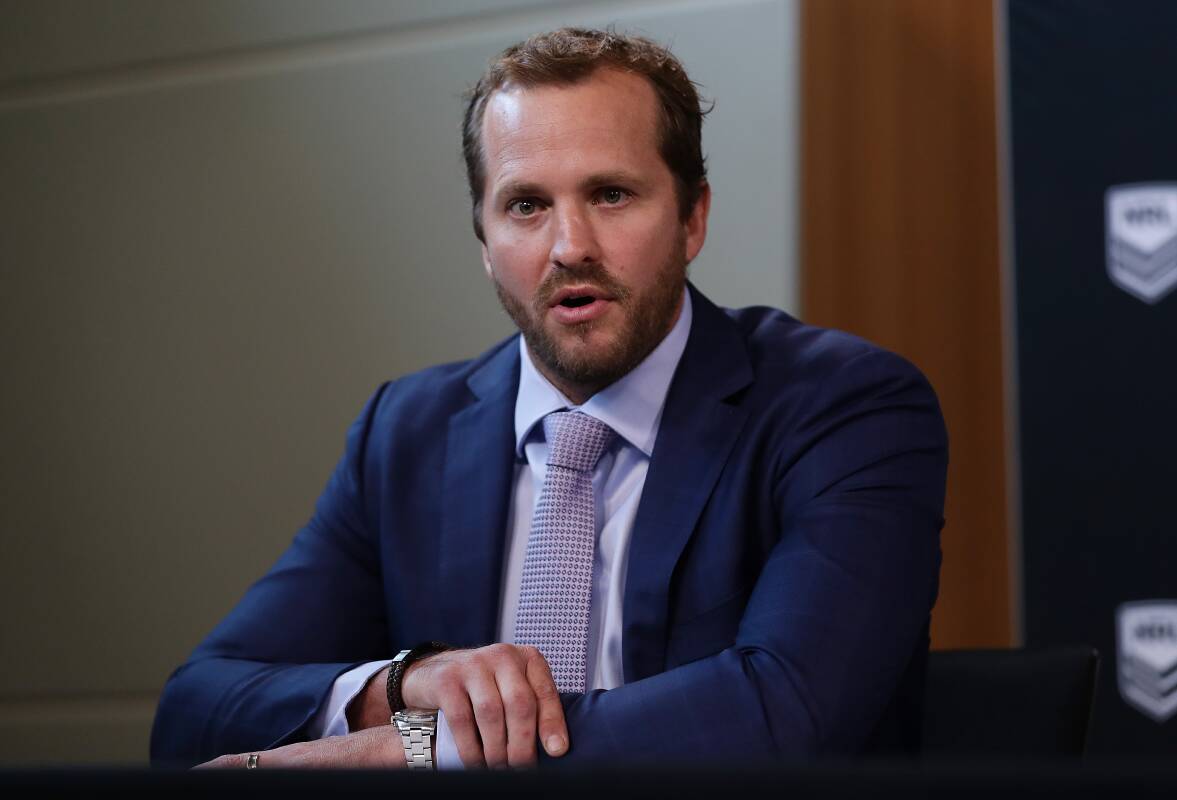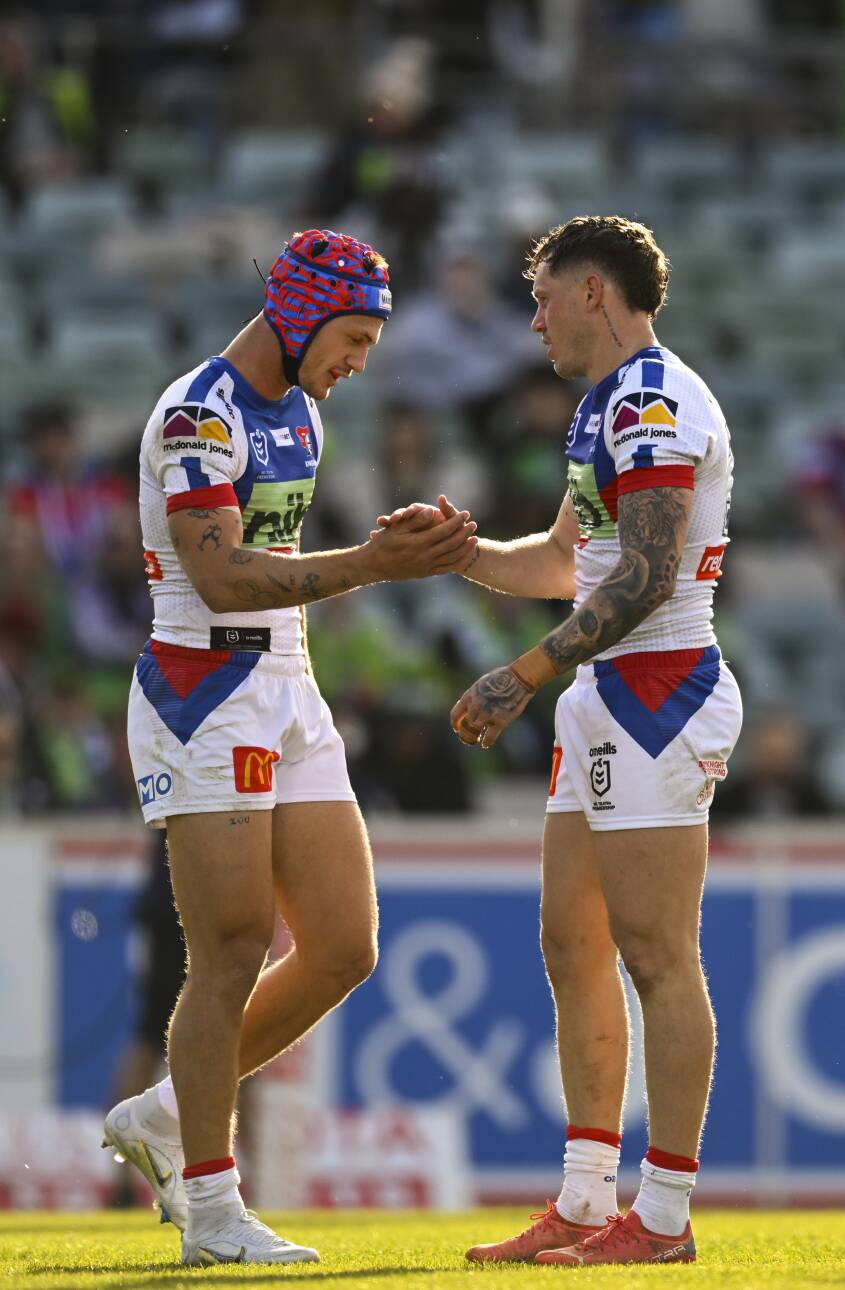RUGBY League Players' Association CEO Clint Newton has queried how information surrounding the drug testing of Kalyn Ponga and Kurt Mann found its way into the public domain.
The Sydney Morning Herald and Daily Telegraph both reported on Tuesday night that Ponga and Mann had been drug tested, at the request of the NRL Integrity Unit, after their much-publicised incident on Saturday night in a toilet cubicle at the Hotel Delany.
"This is an unmatched breach of confidentiality," Newton said.
"It's an absolutely irrefutable clear breach of the process set out in the NRL's testing policy.
"This is fundamentally flawed on so many levels.

"We've got serious questions about how all this unfolded.
"How has a recording in a toilet - mind you they haven't been recorded doing anything illegal - been enough to justify target testing?
"It's not appropriate that these players are being target tested on the basis of a video that breaches privacy laws."
Newton said in discussions with the NRL, the governing body argued the incident breached unspecified "thresholds" that enabled them to use discretionary powers to investigate.
"Let's be honest, there is nothing random about how the [drug-testing] policy has been applied in this case," he said.
"The target-testing process is supposed to be there to protect the health and safety of the workplace, not the individual."
Newton said under the NRL's three-strikes drugs policy, players were entitled to confidentiality after a first offence.

"A first strike is kept confidential, but the actual testing itself is meant to be confidential," he said.
"Yet now it's in the public domain ... our issue is the process, the confidentiality, and the interpretation of the current policy."
Newton said he was not going to speculate on how media outlets obtained the infomation that Ponga and Mann had been drug tested.
The Newcastle Herald understands that other players were tested as well.
"I'm not going to make that assumption, but the issue is how this was allowed to happen," he said.
"Where is the integrity in the Integrity Unit?"
The NRL has confirmed results of drug tests on Kalyn Ponga and Kurt Mann won't be publicly released.
NRL CEO Andrew Abdo defended on Wednesday the Integrity Unit's decision to investigate.
"We have an illicit drug policy ... and when someone has a positive test there's a series of protocols that then happen," Abdo said.
"But those are not made public.
"Our job is to protect the players and protect the sport, that's the job of the Integrity Unit.
"They will do everything that they deem reasonable in order to protect the game, including protecting the players and stakeholders.
"If we have information, then we need to act on it and do it professionally. And I think that's what's unfolding at the moment."
Neither of the pair are due to play against Canberra on Sunday, with Mann still sidelined with a quad injury and Ponga out for the season managing repeated head knocks.
"No-one is saying that they have breached the rules. But clearly there's been a lot of talk and a lot of media publicity around the incident," Abdo said.
"Our job is to get all the facts and then make the determination. And not to prejudge anything."
The issue is not the only one currently under the eye of the NRL integrity unit.
Abdo revealed the league was concerned over alleged use of postcode hand signals in a Manly try celebration against Gold Coast.
Second-rower Haumole Olakau'atu appeared to make a "61" symbol after he crossed, interpreted by some as reference to the 2161 postcode where he grew up with Manase Fainu.
Fainu was last Thursday found guilty of stabbing a youth leader at a church dance in 2019, and has since been denied bail as he awaits sentencing.
"I'm not necessarily pleased with the fact that we have allegations of players showing support potentially under these circumstances," Abdo said.
"It's important for us to understand the context of what's happened, first and foremost.
"But we'll need to look at it. We're in dialogue with the club and I think the club will deal with the matter."







